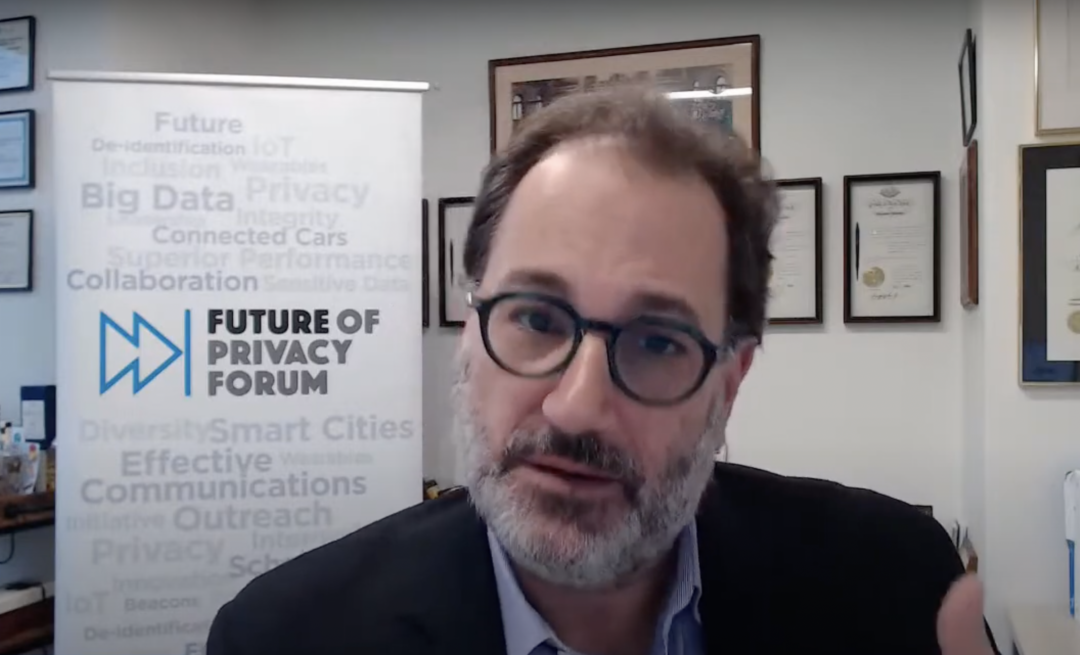Industry Leaders Urge Biden to Tread Lightly With Federal Privacy Legislation
While generally supportive of a federal privacy law, some experts warned it could harm competition.
Em McPhie

WASHINGTON, January 27, 2023 — While there is a need for federal privacy regulation, such legislation could harm innovation, research and competition if not carefully designed, according to leaders of top technology trade associations and think tanks.
“In my opinion, there’s a lot of overblown statements about how bad the problems are,” said Rob Atkinson, president of the Information Technology and Innovation Foundation. “And a lot of the regulatory solutions… would actually, in our view, do more harm than good.”
Speaking at a panel hosted by the ITIF on Wednesday, industry experts responded to President Joe Biden’s recent op-ed calling on Congress to unite against Big Tech companies in three areas of concern: privacy, content moderation and competition.
“It’s gotten to this amazing point where we have a lot of the world’s most dominant tech companies, and to see a headline about uniting against Big Tech by the President of the United States, it hurts me greatly,” said Gary Shapiro, president and CEO of the Consumer Technology Association.
One of Biden’s policy recommendations was to place limitations on targeted advertising and ban the practice altogether for children. But Atkinson disagreed with the implication that targeted advertising is an inherent violation of privacy.
“Targeted advertising is almost always done in an anonymous way where the advertiser doesn’t know my name — they just know that I like to ride my bicycle to work, and so they send me a bicycle ad,” he said.
Despite concerns about the extent of certain proposals, the tech leaders were generally supportive of federal privacy legislation. “It’s incredible that the U.S. is one of the very few democracies in the entire world that does not have a comprehensive privacy law,” said Jules Polonetsky, executive director of the Future of Privacy Forum.
A proposed federal privacy law gained strong bipartisan support toward the end of 2022, but disagreements over two key issues have threatened its progress, explained TechNet CEO Linda Moore.
The first is private right of action, which Moore said was important to “make sure we protect those small and medium-sized companies from frivolous lawsuits that will drive them out of business.”
The second disagreement is over whether the federal law should preempt state privacy laws.
Steve DelBianco, executive director of NetChoice, emphasized the need for a “national standard to replace an impossible patchwork of state laws.”
“If the President is serious about data privacy, he should support the preemption of state laws and the presumption of private right of action,” DelBianco said.
Strict European privacy regulation can provide both guidance and caution
Polonetsky pointed to the European Union’s General Data Protection Regulation, often considered to be the world’s strongest privacy law, as a potential guide for U.S. legislation.
“For years, I would have said no — let’s show the American way to do it,” he said. “But now that we’ve tried to do the American way and made a bit of a jumble in many of our proposals, I have new appreciation for the thought that went into GDPR.”
But in addition to appreciating what the GDPR got right, policymakers should also look carefully at the ways in which it may have overly restricted research, Polonetsky added.
Atkinson emphasized that caution, saying that the GDPR’s “important and useful components” did not outweigh the negative impacts of its research limitations.
The implementation of GDPR also had negative implications for competition, Moore said. “The largest companies gained market share, because the smaller and medium sized companies just couldn’t adapt to the new privacy regime and all the hurdles that are put in place.”
Pursuing the strictest possible privacy standard could result in barring all data sharing and interoperability — things that are “necessary for competition,” Polonetsky claimed. “We need an understanding of the balance and the conflicts which do exist between competition and privacy.”
Privacy law is also closely intertwined with Section 230, Polonetsky said. “It’s clear that any significant change to 230 means companies doing an awful lot of surveillance to track things that are said and posted and done.”
Broadband Breakfast’s Big Tech & Speech Summit will feature panels on each of the issues identified in Biden’s op-ed. Learn more and register here.









Member discussion